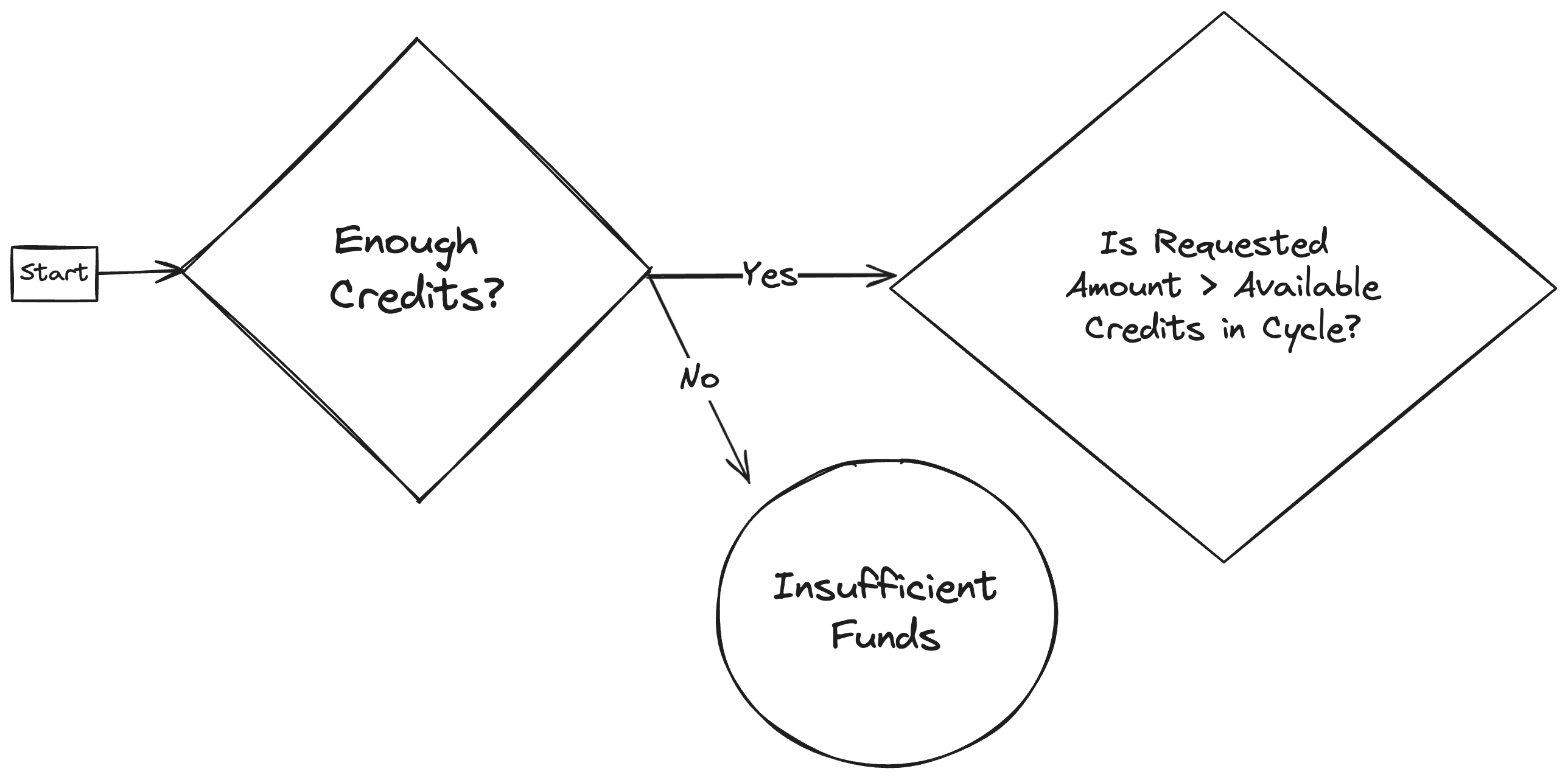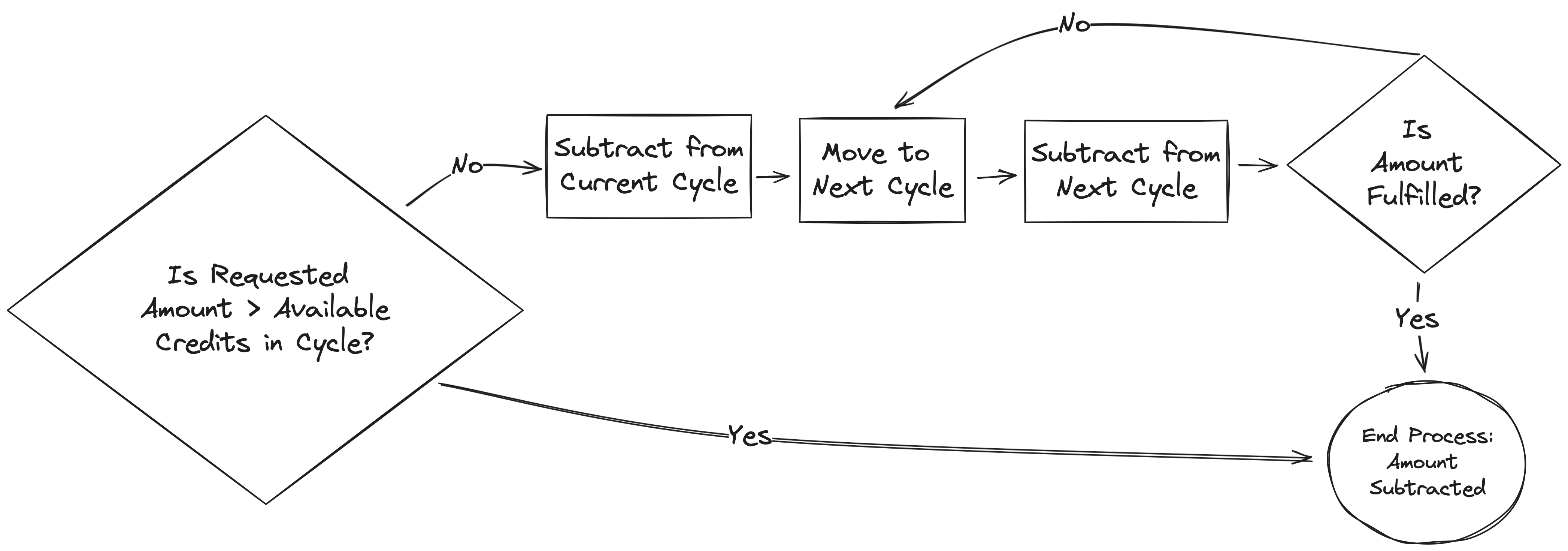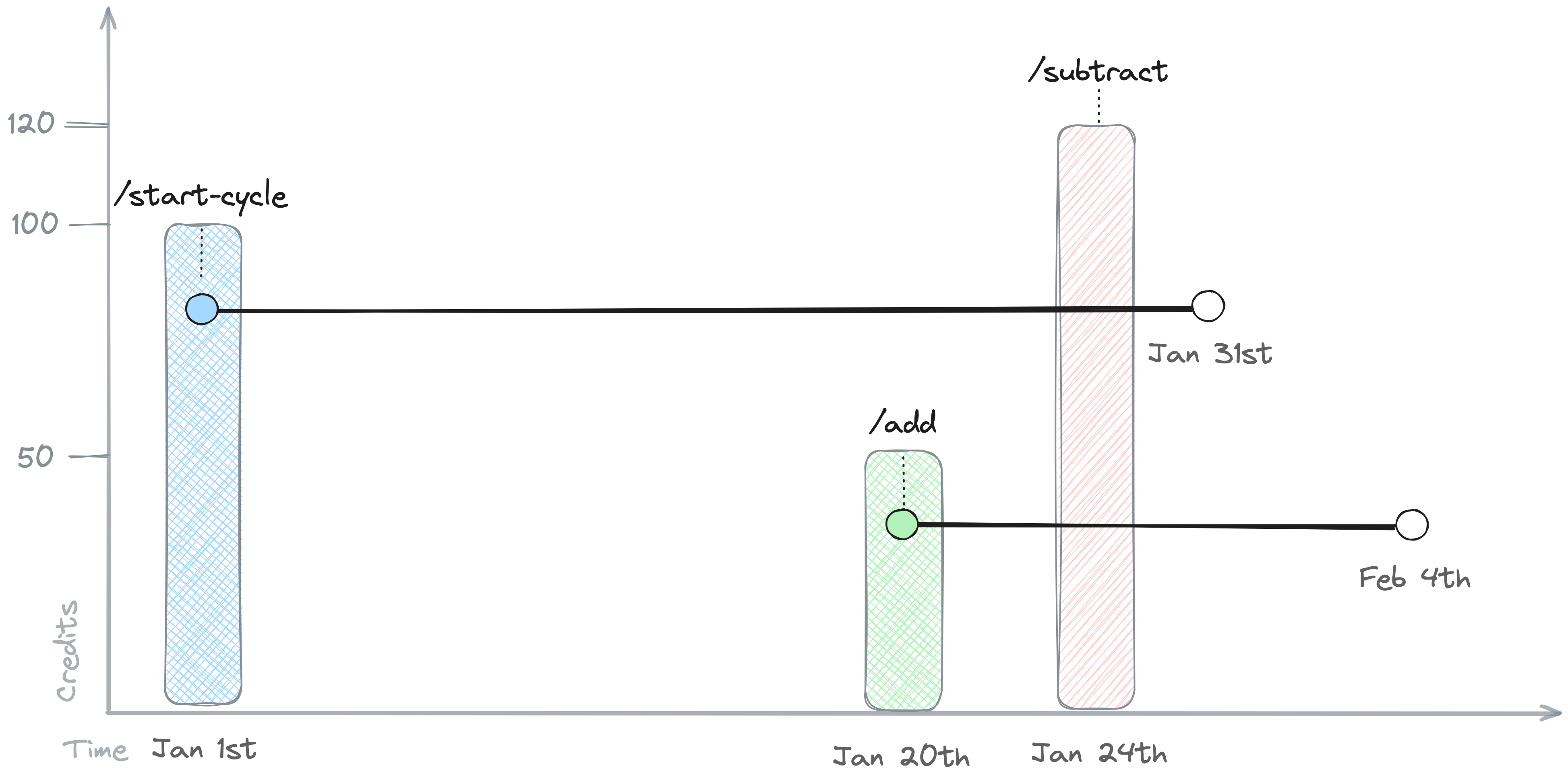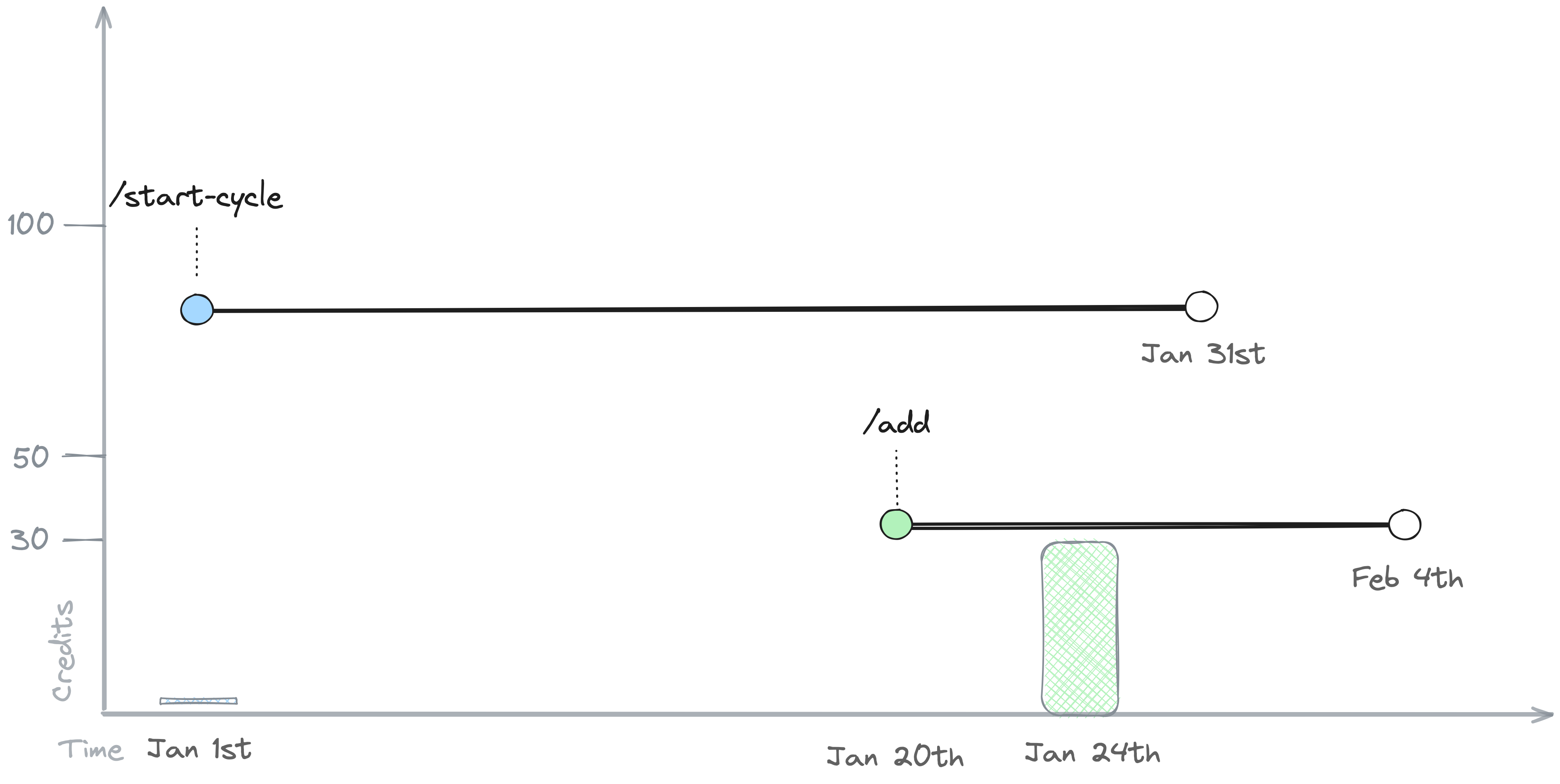Appearance
Credit Subtraction Logic
The credit subtraction process in Creduse is designed to provide a seamless and efficient way to deduct credits from a user's account while ensuring that the oldest credits are utilized first. This approach not only maximizes the utilization of available credits but also helps maintain an accurate and up-to-date balance for each user.
When the /subtract endpoint is called to subtract credits from a user's balance, the system follows a specific logic to determine the source of the credits and the order in which they are deducted. Here's an overview of the credit subtraction process:
- Check Total Active Balance: Before proceeding with the subtraction, the system calculates the user's total
active balanceby summing the credits across all active cycles. If the total balance is less than the requested subtraction amount, the system returns an error message indicatinginsufficient funds.

Prioritize Cycles by Expiration Date: The system groups the active cycles based on their expiration dates, with the cycle closest to expiration being considered first.
Subtract Credits from Prioritized Cycles: If the active balance of the first cycle is greater than or equal to the requested subtraction amount, the system deducts the credits from that cycle and completes the process. If the balance is less than the requested amount, the system deducts the available credits from that cycle and moves on to the next cycle in the priority list.
Continue Across Multiple Cycles: This process continues across all active cycles until the total requested subtraction amount is fulfilled by the combined credits from the various cycles.

By following this logic, Creduse ensures that the oldest credits are utilized first, reducing the risk of credit expiration and maximizing the value derived from the user's available balance. Additionally, the system maintains an accurate and up-to-date record of the user's remaining credits, providing transparency and enabling informed decision-making.
Example
Let's consider a scenario where a user has two active Cycles:
Monthly Subscription Cycle: This cycle is created when the user subscribes to your service on January 1st. The cycle has a
validity_daysof30, and the user receives100credits.Promotional Offer Cycle: This cycle is created when the user participates in a promotional offer on January 20th. The cycle has a
validity_daysof15, and the user receives50credits.
Now, let's assume that on January 24th the user performs an action that requires 120 credits to be subtracted from their balance.

Here's how the system will handle the credit subtraction:
Check Total Active Balance: The system calculates the total active balance by summing the credits across all active cycles. In this case, the total active balance is
150credits, which is greater than the requested subtraction amount.Prioritize Cycles by Expiration Date: The system groups the active cycles based on their expiration dates. The
Monthly Subscription Cycleis prioritized over thePromotional Offer Cycledue to its earlier expiration date (January 31st vs. February 4th).Subtract Credits from Prioritized Cycles: The system deducts
100credits from theMonthly Subscription Cycle, leaving0credits in that cycle. The remaining20credits are then deducted from thePromotional Offer Cycle, leaving30credits in that cycle.Process Completion: The system completes the process, and the user's balance is updated accordingly.
